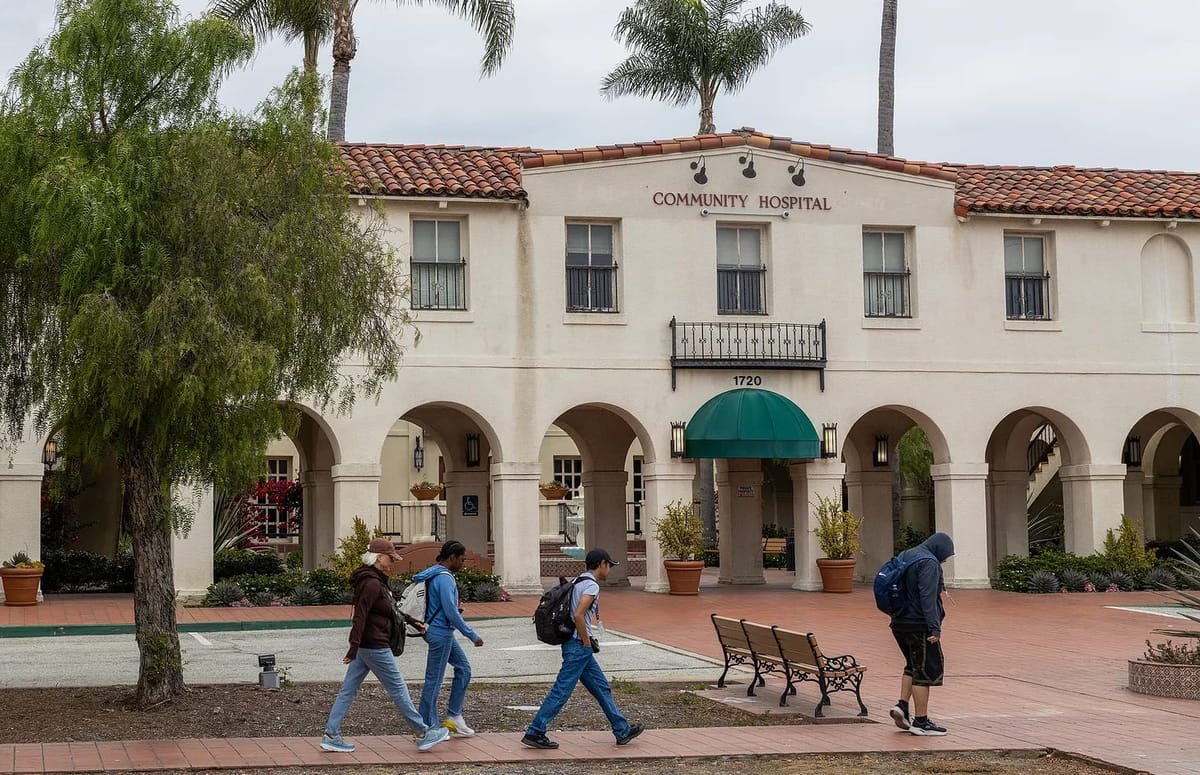Critically Speaking: Closing the door in closed session
Quietly settling a legal battle over Community Hospital.


If I told you that you could pay someone $700,000 to make a potentially much larger and expensive problem go away, you’d pay that bill, right?
Of course, that means you already have that kind of cash on deck, which also puts you in line to make a pretty nice down payment on a mid-priced single-family home in California, something that recently surpassed $900,000.
The city does have that kind of money on hand, thanks to your tax dollars. This week the Long Beach City Council decided in closed session to settle a handful of lawsuits tied to the city’s 2022 “sale” of Community Hospital for $0 to the operator, MWN Community Hospital LLC, which had briefly reopened and then shuttered it again after claiming it had sustained nearly $30 million in losses.
Why was this issue decided in a closed session?
Well, the Brown Act governs how public meetings need to be held to comply with state transparency requirements and allows governing bodies to meet privately to discuss things like contracts, real estate deals and lawsuits.
I’ve always believed that if any part of a meeting should be public, it’s the part that’s shrouded by closed session because ultimately those decisions can (and do) cost the city’s taxpayers a lot of money or set the course for a land sale that could significantly change the course of a city’s makeup.
Remember, the Brown Act allowed the council to meet briefly behind closed doors a few years ago while the city was flirting with the possibility of the Los Angeles Angels relocating to Long Beach.
Long Beach Watchdog is a reader-supported publication. To receive new posts and support our work, consider becoming a subscriber.
But the decision to settle the Community Hospital issue was a bit surprising to me and I’ll explain why.
I’ve been following this issue for a few months, since I first heard of a judge’s ruling that basically said the city needed to take back control of the hospital, which was already well underway toward becoming an outpatient mental health campus.
Warren Blesofsky, who has filed several lawsuits in the past against proposed developments in the city, had challenged the sale of the property on several fronts, including an alleged violation of environmental law and surplus property law, which the city argued didn’t apply to the property.
Typically when a city-owned property is up for sale, the city has to make it available to affordable housing developers first. That process can take months, even if no developer shows real interest. That would have complicated things for MWN given that it already had a service provider on site and was ready to accept patients when the ruling came down.
When I talked to Blesofsky earlier this year, he seemed intent on seeing the suit through to the end. When I had heard a rumor that he’d been offered a $1 million settlement to go away, I called him again to let him know he was a better person than I was for not accepting it.
He said he hadn’t heard any offer and wasn’t interested in settling.
“This has been a hospital since 1924 and it should be a hospital today,” he said.
Maybe you can blame me for planting the seed of the settlement in his mind?
Paying Blesofsky to go away not only saves face for the city in a deal that has already been labeled a boondoggle by some of the city’s most persistent critics, but it could have potentially saved it a much higher-stakes lawsuit.
The reason why the hospital was “sold” to MWN was because the deal it struck with the operator to reopen the site said the city would cover its losses up to the appraised value of the property ($17 million) if reopening the hospital was a failure.
City documents noted that this was a likely outcome but the City Council, under immense public pressure to reopen the East Long Beach facility, voted to approve a long-term lease in 2019.
Handing the hospital over to MWN allowed the city to cover the reported $30 million in losses for $0 but a lawsuit that could have resulted from the judge’s ruling being upheld and MWN being stripped of ownership could have put the city back on the hook for that money.
The city paying $700,000 took the guesswork out of what an appeals court may have decided down the road.
What happened this week
State officials are finally taking a look at one of the city’s deadliest streets and what could be done to improve safety for pedestrians and cyclists. Pacific Coast Highway runs through the heart of the city but because it’s a highway, it’s under the jurisdiction of Caltrans, which is asking the community to fill out a survey to help determine what type of bike lanes should be installed on the stretch that runs between the Traffic Circle and the Los Angeles River. The options include bollard-separated lanes, painted lanes next to traffic and elevated bike lanes. The project isn’t expected to start construction until at least 2027 but the survey is now open. You can fill out the survey here.
Something to pay attention to
Next week is one of those “Black Tuesday” weeks, which means there won’t be a City Council meeting. There probably will be a local meeting hosted by your council representative (it’s tradition) but there will definitely be Pup Trivia. The Long Beach Watchdog is hosting “Pup Quiz!,” our first bar trivia night as part of our ongoing series of fundraisers. Believe it or not, we’re still on strike. These fundraisers are intended to not only raise money to pay our reporters to continue to provide the coverage The Watchdog’s put out since April, but also to meet our community of supporters in what we hope are fun settings. So, if you’re free Thursday, May 30, come on down to Altar Society on Pine Avenue and let’s crown a trivia champion. You can register here.
Jason Ruiz has been on strike from the Long Beach Post since March 21, yet he’s still covering city hall without pay. Thank him for his reporting.
We need your support.
Subcribe to the Watchdog today.
The Long Beach Watchdog is owned by journalists, and paid for by readers like you. If independent, local reporting like the story you just read is important to you, support our work by becoming a subscriber.





